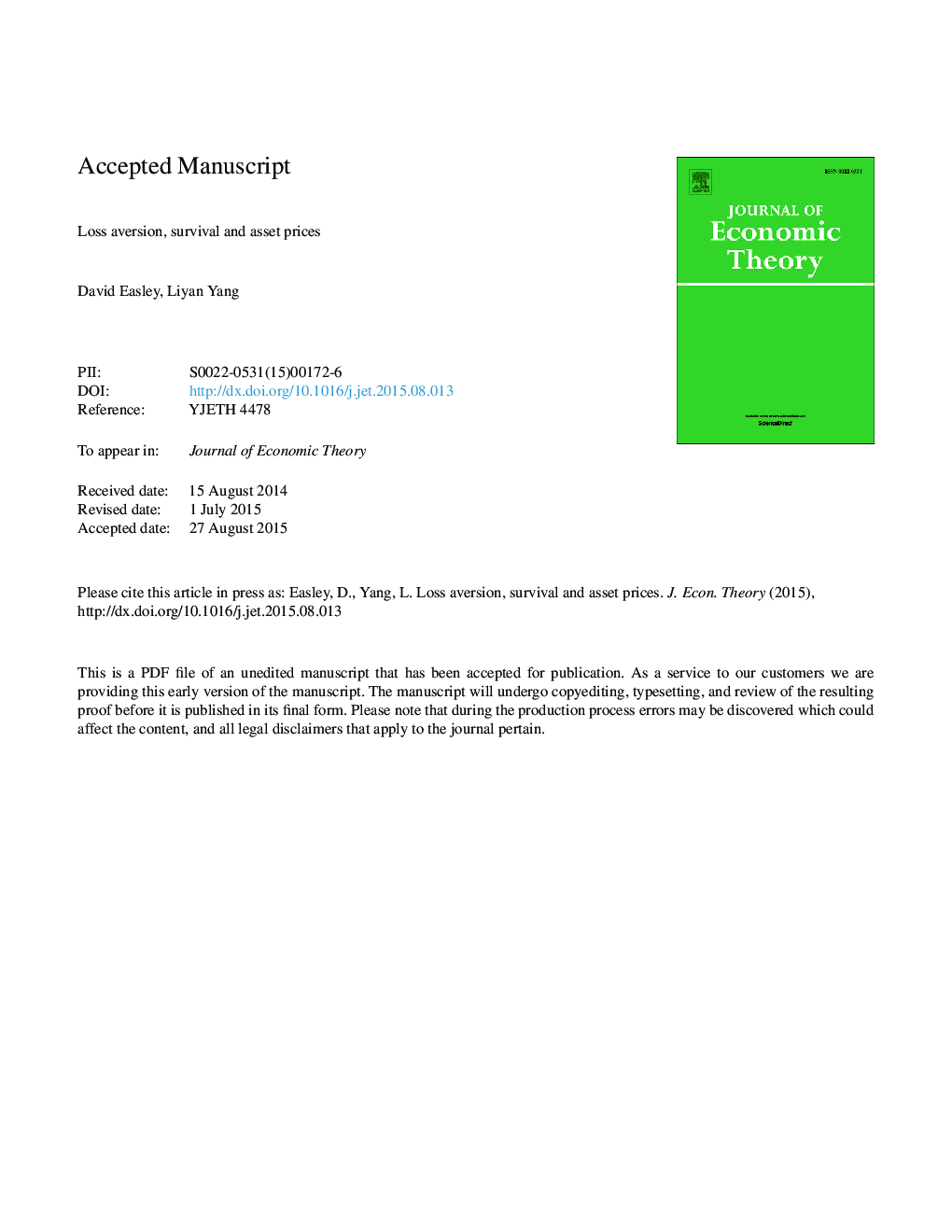| Article ID | Journal | Published Year | Pages | File Type |
|---|---|---|---|---|
| 7359643 | Journal of Economic Theory | 2015 | 41 Pages |
Abstract
This paper studies the wealth and pricing implications of loss aversion in the presence of arbitrageurs with Epstein-Zin preferences. Loss aversion affects an investor's survival prospects mainly through its effect on the investor's portfolio holdings. Loss-averse investors will be driven out of the market and do not affect long-run prices if their portfolio positions are further away from those corresponding to the log investor than arbitrageurs. In terms of wealth shares, the market selection process can be slow, but the selection force is nonetheless effective in terms of price impact, which highlights the importance of introducing preference heterogeneity in understanding asset prices.
Related Topics
Social Sciences and Humanities
Economics, Econometrics and Finance
Economics and Econometrics
Authors
David Easley, Liyan Yang,
